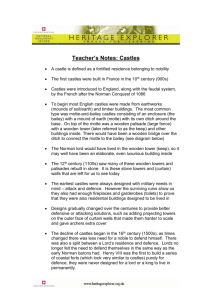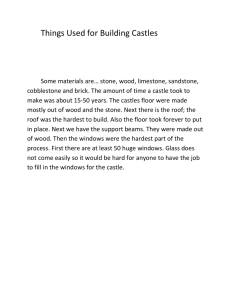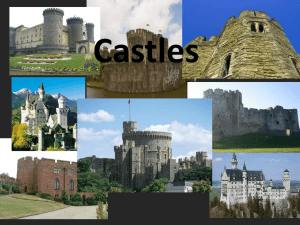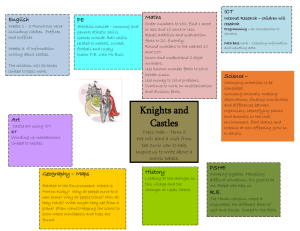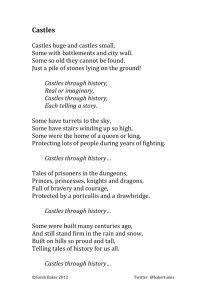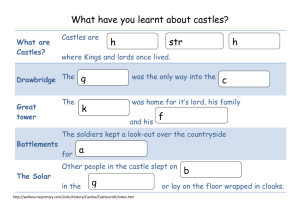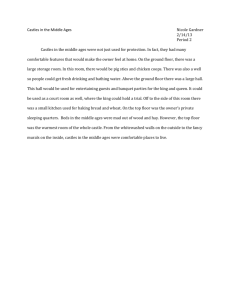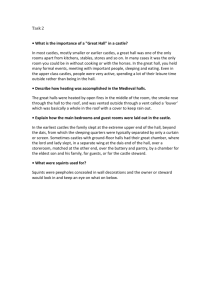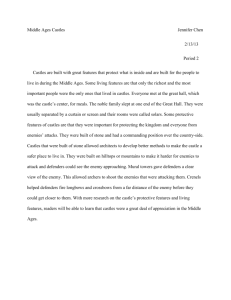Middle Ages project CB
advertisement
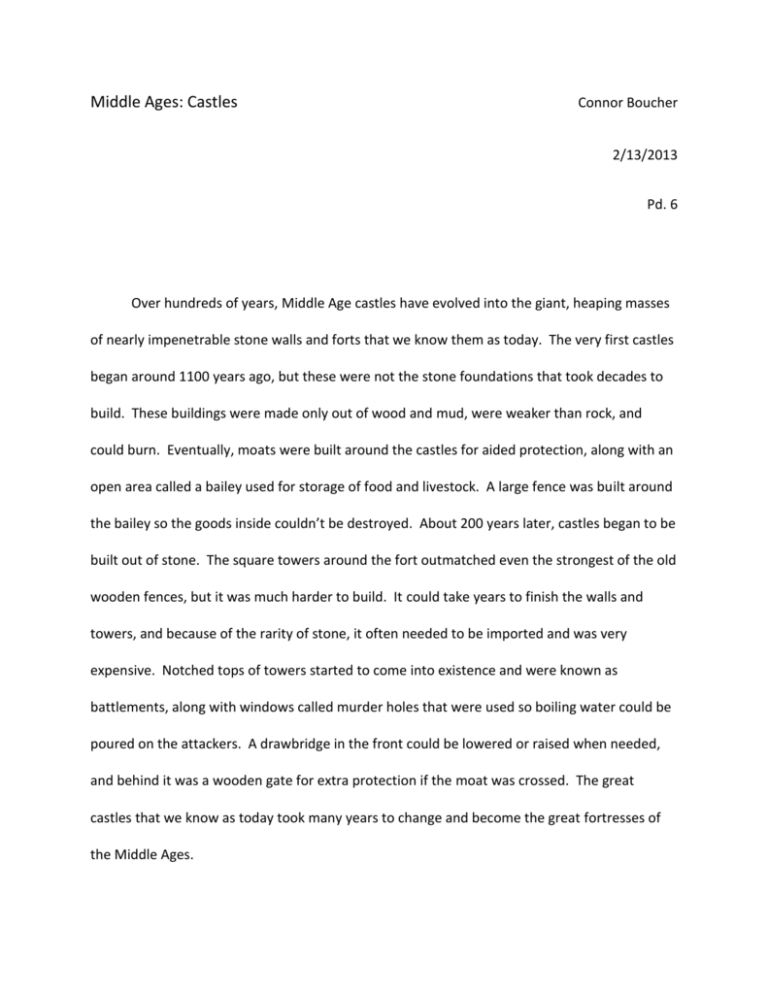
Middle Ages: Castles Connor Boucher 2/13/2013 Pd. 6 Over hundreds of years, Middle Age castles have evolved into the giant, heaping masses of nearly impenetrable stone walls and forts that we know them as today. The very first castles began around 1100 years ago, but these were not the stone foundations that took decades to build. These buildings were made only out of wood and mud, were weaker than rock, and could burn. Eventually, moats were built around the castles for aided protection, along with an open area called a bailey used for storage of food and livestock. A large fence was built around the bailey so the goods inside couldn’t be destroyed. About 200 years later, castles began to be built out of stone. The square towers around the fort outmatched even the strongest of the old wooden fences, but it was much harder to build. It could take years to finish the walls and towers, and because of the rarity of stone, it often needed to be imported and was very expensive. Notched tops of towers started to come into existence and were known as battlements, along with windows called murder holes that were used so boiling water could be poured on the attackers. A drawbridge in the front could be lowered or raised when needed, and behind it was a wooden gate for extra protection if the moat was crossed. The great castles that we know as today took many years to change and become the great fortresses of the Middle Ages.

